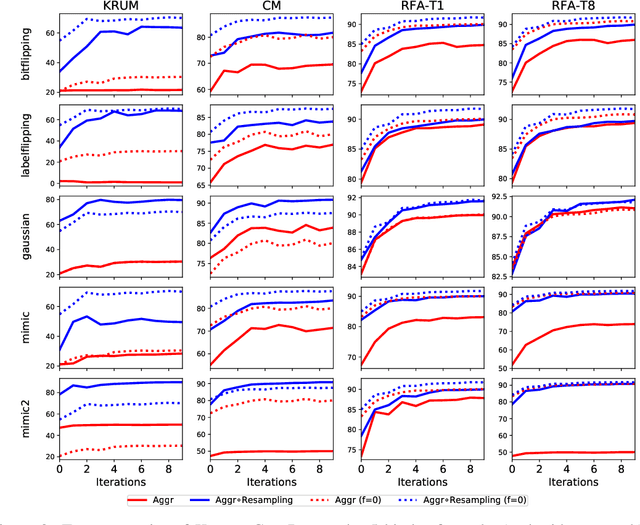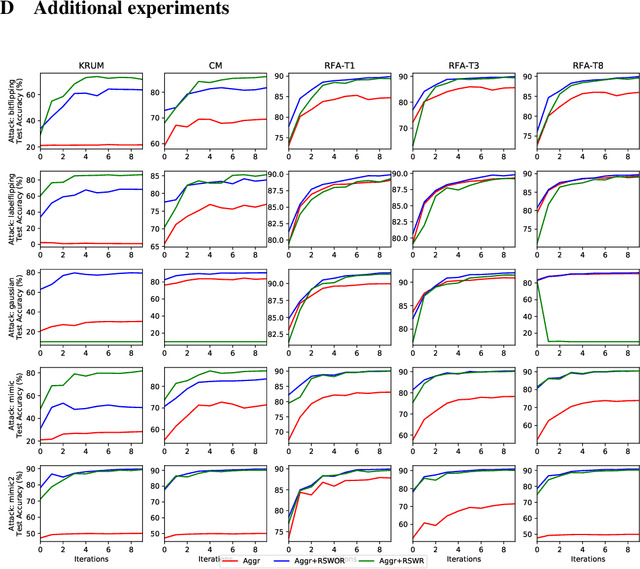Byzantine-Robust Learning on Heterogeneous Datasets via Resampling
Paper and Code
Jun 23, 2020



In Byzantine robust distributed optimization, a central server wants to train a machine learning model over data distributed across multiple workers. However, a fraction of these workers may deviate from the prescribed algorithm and send arbitrary messages to the server. While this problem has received significant attention recently, most current defenses assume that the workers have identical data. For realistic cases when the data across workers is heterogeneous (non-iid), we design new attacks which circumvent these defenses leading to significant loss of performance. We then propose a simple resampling scheme that adapts existing robust algorithms to heterogeneous datasets at a negligible computational cost. We theoretically and experimentally validate our approach, showing that combining resampling with existing robust algorithms is effective against challenging attacks.
 Add to Chrome
Add to Chrome Add to Firefox
Add to Firefox Add to Edge
Add to Edge